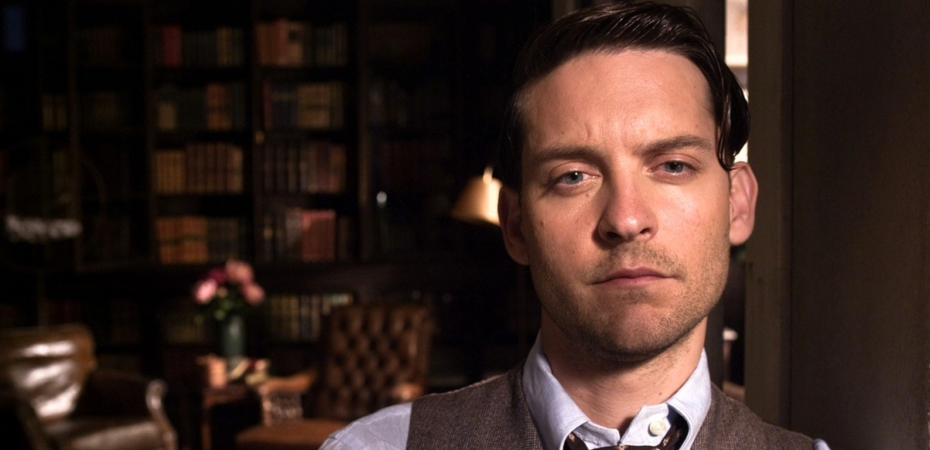Considering that he was an international phenomenon, it’s surprising that Bobby Fischer hasn’t been the subject of a biopic before Pawn Sacrifice. With that in mind, the film focuses on Fischer’s rise as a chess player, from his early wins as a 13-year-old and culminating in the World Chess Championship title match in 1972 that pitted Fischer against the Soviet Union’s champion, Boris Spassky. The match was broadcast around the world, and it was followed by political leaders of both nations. What the audience didn’t know at the time, though, was how poorly Fischer’s mental health was by 1972.
That’s the part of Fischer, here played by Tobey Maguire, that Pawn Sacrifice wants to examine. To his credit, Maguire proves up for the challenge of displaying Fischer’s increasingly loosened grasp on reality. It’s a dark turn for the actor, and Maguire utilizes a set of skills he normally doesn’t tap into. Maguire’s boyish looks help him take over the role from a pair of younger actors briefly handling Fischer’s younger days, allowing for Maguire to tackle Fischer throughout the 1960s and 70s. Fischer’s particular mental problems, along with his regular encounters with Russians, create a perfect storm of Cold War-era paranoia, and Fischer often believes that he’s being followed or bugged. His paranoia also manifests in an increasing number of rants against both Communists and Jews – a bit of antisemitism which comes off as more disturbed when other characters point out that Fischer himself is Jewish.
The material is interesting, and Maguire is helped by a solid supporting cast. While other people flow in and out of the film, a trio of supporting players provide Maguire with most of his interplay. There’s Paul Marshall (Michael Stuhlbarg) as Fischer’s lawyer, who arranges Fischer’s chess meets and keeps in contact with powerful figures in Washington who want Fischer to play, since he’s seen as part of a rare conflict where the U.S. can decisively win. He’s joined at time by Father Bill Lombardy (Peter Sarsgaard), a former player who serves as Fischer’s coach/practice partner. Then there’s Spassky (Liev Schreiber), Fischer’s opponent who’s more likely to communicate through a raised eyebrow than he is verbally (and it’s to the film’s credit that most of Spassky’s verbal lines are in Russian, not English).
Where the film falters is when director Edward Zwick tries too hard to visually express Fischer’s perspective. He regularly relies on a combination of archival footage and footage made to look like it’s archival, along with a variety of other stylized shots, and a lot of it feels superfluous. The moments that work best, in fact, are the ones that aren’t overly stylized. Zwick and his editor manage to wring humor out of shots like the beginning of a Fischer match that quickly cuts to his opponent on his way home, clearly defeated. Zwick also smartly keeps the chess matches largely off-screen. The film focuses more on the prep work Fischer goes through, and how this work collides with Fischer’s decreasing stability. He also makes the curious decision to basically halt the film’s story after the championship series, with the remaining decades of Fischer’s life being covered in a lengthy postscript on-screen and a bit of archival footage featuring the real Fischer. It keeps the film from avoiding some biopic clichés in terms of Fischer’s later descent in life, but it’s also a sudden end to a film that, even with strong performances, only really works in bits.


